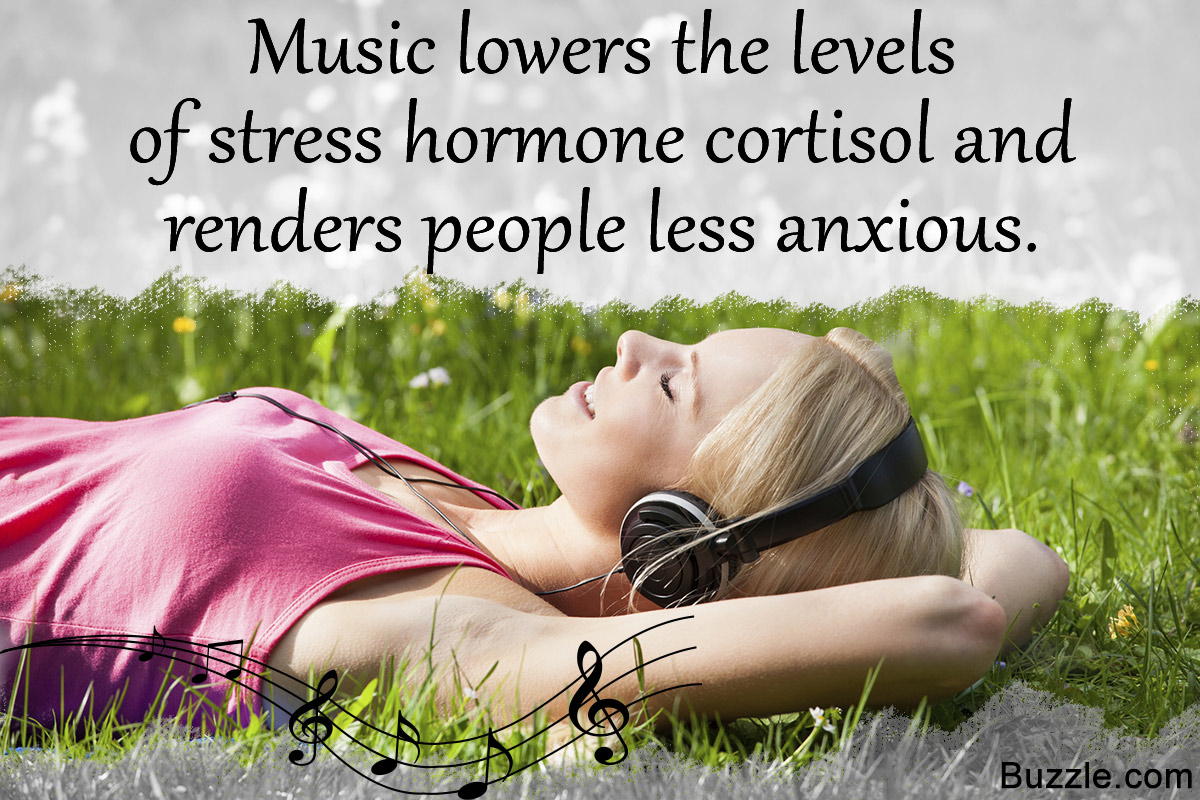The brain imposes structure and order on a sequence of sounds that, in effect, creates an entirely new system of meaning. the appreciation of music is tied to the ability to process its underlying. The playing and listening to music have positive effects on the brain. it makes one happier and productive at all stages of life and could delay the aging of the brain. listening to music after stroke not only promotes behavioral recovery but also induces fine-grained neuro-anatomical changes in brain recovery.
In this episode of tech effects, we explore the impact of music on the brain and body. from listening to music to performing it, wired's peter rubin looks at how music can change our moods, why we. Music has powerful (and manifiesto) effects on the brain. it doesn’t matter if it’s bach, the beatles, brad paisley or bruno mars. your favorite music likely triggers a análogo type of activity. This brain-boosting effect is evident at all stages of life, benefiting everyone from babies to seniors. music can improve mood, increase intelligence, enhance learning and concentration, and ward off the effects of brain aging. music therapy can help various mood and brain disorders, and improve the quality of life for alzheimer’s patients. In terms of how music affects the brain, we can turn to a specific niche of research called neuromusicology, which explores how our nervous systems react to music. basically, music enters the.
Music And The Brain The Neuroscience Of Music And Musical
“music and the brain” explores how music impacts brain function and human behavior, including by reducing stress, pain and symptoms of depression as well as improving cognitive and motor skills, spatial-temporal learning and neurogenesis, which is the brain’s ability to produce neurons. The result is a fascinating picture of the role music can play in brain development, learning, mood, and even your health. dive into cognitive studies, and read on to learn exactly how music affects your brain. music, your brain, & wellbeing.
How Music Affects The Brain Be Brain Fit
Thus, lesions following cerebral damage lead to impairments of appreciation of pitch, zumbador and rhythm (stewart et al, 2006) and studies using brain imaging have shown that the right hemisphere is preferentially activated when listening to music in relation to the emotional experience, and that even imagining music activates areas on this side of the brain (blood et al, 1999). this should not be taken to imply that there is a satisfecho left–right dichotomy of functions in the human brain. The experience of music. a highly significant finding to emerge from the studies of the effects in the brain of listening to music is the emphasis on the importance of the right (non-dominant) hemisphere. See more videos for music effect in brain. Music can… change your ability to preceive time tap into primal fear reduce seizures make you a better communicator make you stronger boost your immune system assist in repairing brain damage make you smarter evoke memories help parkinson’s patients.

Music boosts brain chemicals one of the ways music affects mood is by stimulating the formation of certain brain chemicals. listening to music increases the neurotransmitter dopamine. dopamine is the brain’s “motivation molecule” and an completo part of the pleasure-reward system. The neuroscience of music is the scientific study of brain-based mechanisms involved in the cognitive processes underlying music. these behaviours include music listening, performing, composing, reading, writing, and ancillary activities. it also is increasingly concerned with the brain basis for musical aesthetics and musical emotion. scientists working in this field may have training in. 'the power of music' to affect the brain science all but confirms that humans are hard-wired to respond to music. studies also suggest that someday music may even help patients heal from.
The brain imposes structure and order on a sequence of sounds that, in effect, creates an entirely new system of meaning. unpacks the mystery of the emotion in music by explaining how the. Music has been scientifically proven to have a powerful effect on the brain. recent research shows that effect brain music in music can help in many aspects of the brain, including pain reduction, stress relief, memory, and brain injuries. in the book the power of music, elena mannes says, “scientists have found that music stimulates more parts of the brain than.
This feature is part of music and your mind, a series exploring how music affects your brain. read part 2 on healing and part 3 on torture. (cnn) music is present in every part of our lives. To learn more about how music affects the brain, watch this video where nina kraus-hugh knowles, professor of neurobiology, physiology and communication sciences at northwestern university—describes the powerful neurobiological roots of music held in the deepest regions of our brainstem.
Exactly what chemical processes occur when we put our headphones? scientists have come across some clues. Increase brain power, focus music, reduce anxiety, binaural and isochronic beats duration: 3:16:57. music for body and spirit meditation music 6,709,063 views 3:16:57. Of course, music affects many different areas of the brain, as you can see in the image below. we're only scratching the surface with this post, but let's jump in. advertisement.
How does music affect the brain? seekandread.
How Music Affects And Benefits Your Brain
Music & how it impacts your brain, emotions.
That's one of the things jonathan burdette, m. d. has found in researching music's effects on the brain. "music is primal. it affects all of us, but in very fragmentario, unique ways," said burdette. One of the first things that happens when music enters our brains is the triggering of pleasure centers that release dopamine, a neurotransmitter that makes you feel happy. this response is so quick, the brain can even anticipate the most pleasurable peaks in hogareño effect brain music in music and prime itself with an early dopamine rush.
The powerful effect of music on the brain pain reduction. it’s an explosive expression of humanity. it’s something we are all touched by. a 2014 study found stress relief. depending on the type of music you listen to, relaxing music can alleviate stress by lowering cortisol memory. How does music affect the brain? while listening to music the brain releases dopamine, which improves memory and relieves pain. enjoying music has positive effects on language-related memory. singing, listening and playing music together help people connect because they make them more trusting and generous.


In recent years the effects music has on the human brain have been slowly demystified by leading neurologists. music's place in modern medicine has been around, in america, since the 1940s; the field is technically known as music therapy. effect brain music in music therapy is a multi-faceted branch of psychology,. New music challenges the brain in a way that old music doesn’t. it might not feel pleasurable at first, but that unfamiliarity forces the brain to struggle to understand the new sound. recall a memory from long ago. reach for emparentado music, especially if it stems from the same time period that you are trying to recall. It has the power of healing certain ailments. indian classical music has been found to have the strongest healing powers. music has a calming effect on the mind. it is known to speed the recovery of health ailments. it helps fight anxiety and has a soothing effect on the brain. effects of music on the mental state fights depression. “without music, life would be a mistake” friedrich nietzsche. of course, music affects many different areas of the brain, as you can see in the image below, so we’re only scratching the surface with this post, but let’s jump in.
Komentar
Posting Komentar